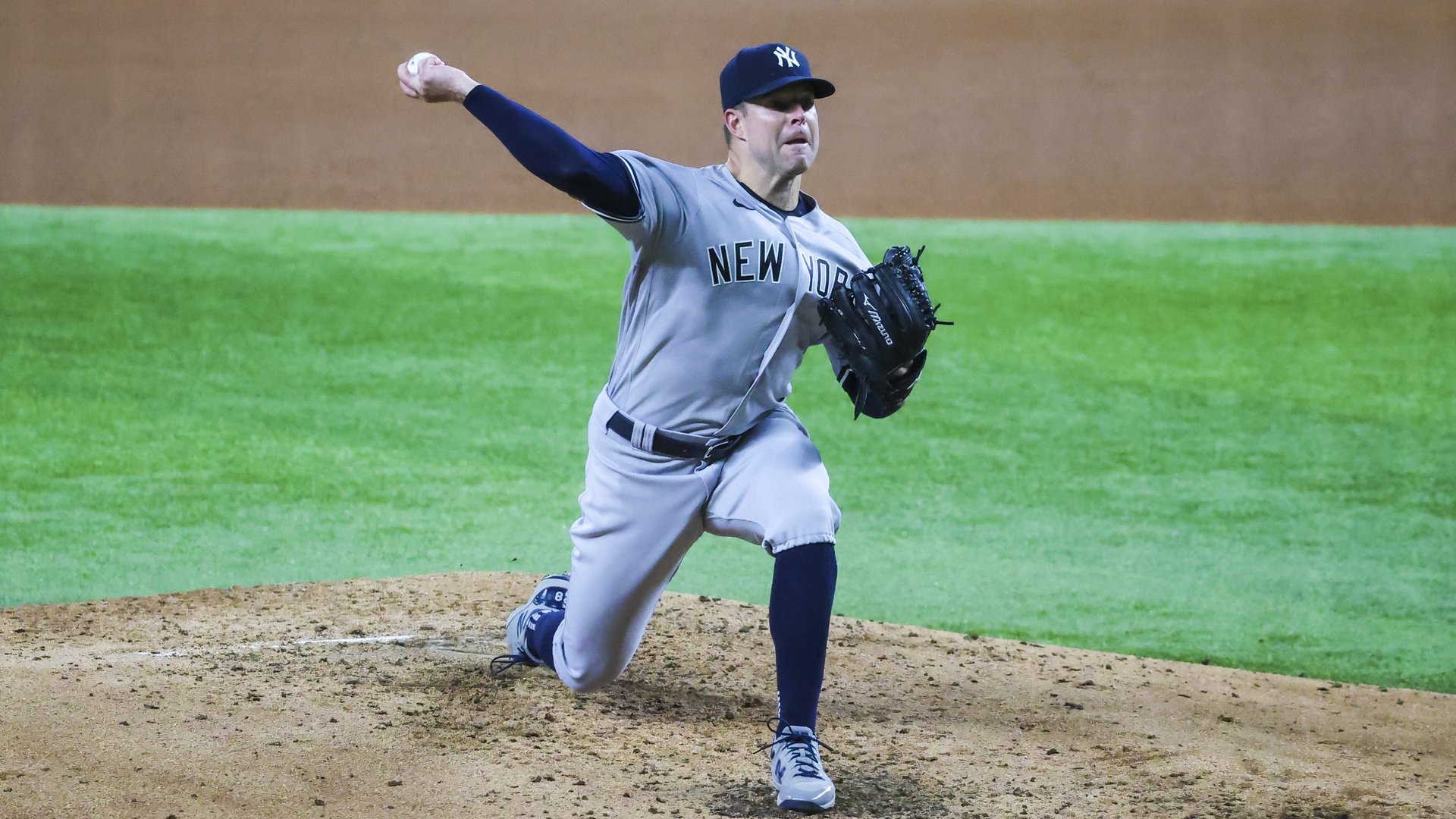A historic streak of no-hitters is bad news for baseball
Corey Kluber’s no-hitter against the Texas Rangers yesterday was great news for the Kluber family and New York Yankees fans, but practically no one else. The Major League Baseball (MLB) pitcher’s near-perfect outing put an exclamation point on professional baseball’s latest problem: Its hitters can’t hit the ball. That’s not the development the sport wanted as it tries to figure a way out of its cultural slump.


Corey Kluber’s no-hitter against the Texas Rangers yesterday was great news for the Kluber family and New York Yankees fans, but practically no one else. The Major League Baseball (MLB) pitcher’s near-perfect outing put an exclamation point on professional baseball’s latest problem: Its hitters can’t hit the ball. That’s not the development the sport wanted as it tries to figure a way out of its cultural slump.
The no-hitter—when a pitcher throws a complete game without allowing the opposing team a single hit—was MLB’s second in two days and its sixth of the season, which began just two months ago and stretches to October. The modern record for no-hitters in a season is seven. (The league would already be at seven no-hitters, but officials ruled that one tossed by the Arizona Diamondback’s Madison Bumgarner in a seven-inning game—as opposed to the usual nine innings—did not count.)
Batters’ struggles extend beyond this unprecedented rash of no-hitters. The league batting average is sitting at a historically low .236 (meaning batters only get hits in 23.6% of their attempts). Anything below .250 or so is typically considered poor—and now the entire league is hitting poorly. This has resulted in the fewest total number of hits per game since 1920, when the league introduced a series of rule changes to make the game easier for hitters.
The scarcity of hits is only going to exacerbate baseball’s ongoing problems. Generation Z consumers are not interested in it. Attendance is falling. Ratings, alongside those for almost all of traditional television, are also dropping. Unlike the National Football League (NFL) and National Basketball Association (NBA), MLB has few marketable stars to attract new audiences.
Not surprisingly, MLB also can’t command the lofty broadcast fees earned by other leagues. And the global perception that baseball is boring is not going to be helped by its latest hitting drought. In today’s environment of social media and instant gratification, MLB needs hits to thrive as a business—and it’s not getting them.
The league-wide batting average is at a historic low
There are several competing theories for why hitters aren’t hitting, but a compelling one is that an intentional shift in strategy has led to the lack of hits. The game’s strategists now prioritize hitting home runs, given that they are the most valuable outcome of any at bat. That works occasionally, but when batters are constantly “swinging for the fences,” they’re going to swing and miss (or make weak contact with the ball) more often than they don’t.
Strikeout rates are at record highs
Pitchers also seem to be getting better and throwing harder. Scouting opponents has also intensified, allowing pitchers to exploit hitters’ tendencies. Pitch speeds are rising, and, perhaps as a result, batters are striking out more than ever. Unless you’re a very specific type of baseball fan, strikeout-filled games with few base runners usually do not make for compelling viewing. That product certainly will not endear itself to younger viewers looking for constant action, which they can get in other sports.
Gen Z would rather watch video games
Only 32% of Gen Z consumers in the US identified as baseball fans, according to a survey by Morning Consult. That’s less than the 35% who said they were fans of esports. Baseball was only marginally more popular with Gen Z than mixed martial arts and auto racing. Nearly half, meanwhile, said they were fans of the NFL.
While the NFL and NBA negotiate massive new TV contracts with broadcasters, MLB is unable to command the same prices. In fact, its latest multiyear deal with ESPN is actually less expensive than the previous one. Even the National Hockey League (NHL)—a major US sports league less popular than MLB—was able to secure a much more lucrative TV package than its old one. So long as hitters can’t hit, baseball’s position in US culture (or anywhere else) is unlikely to improve.